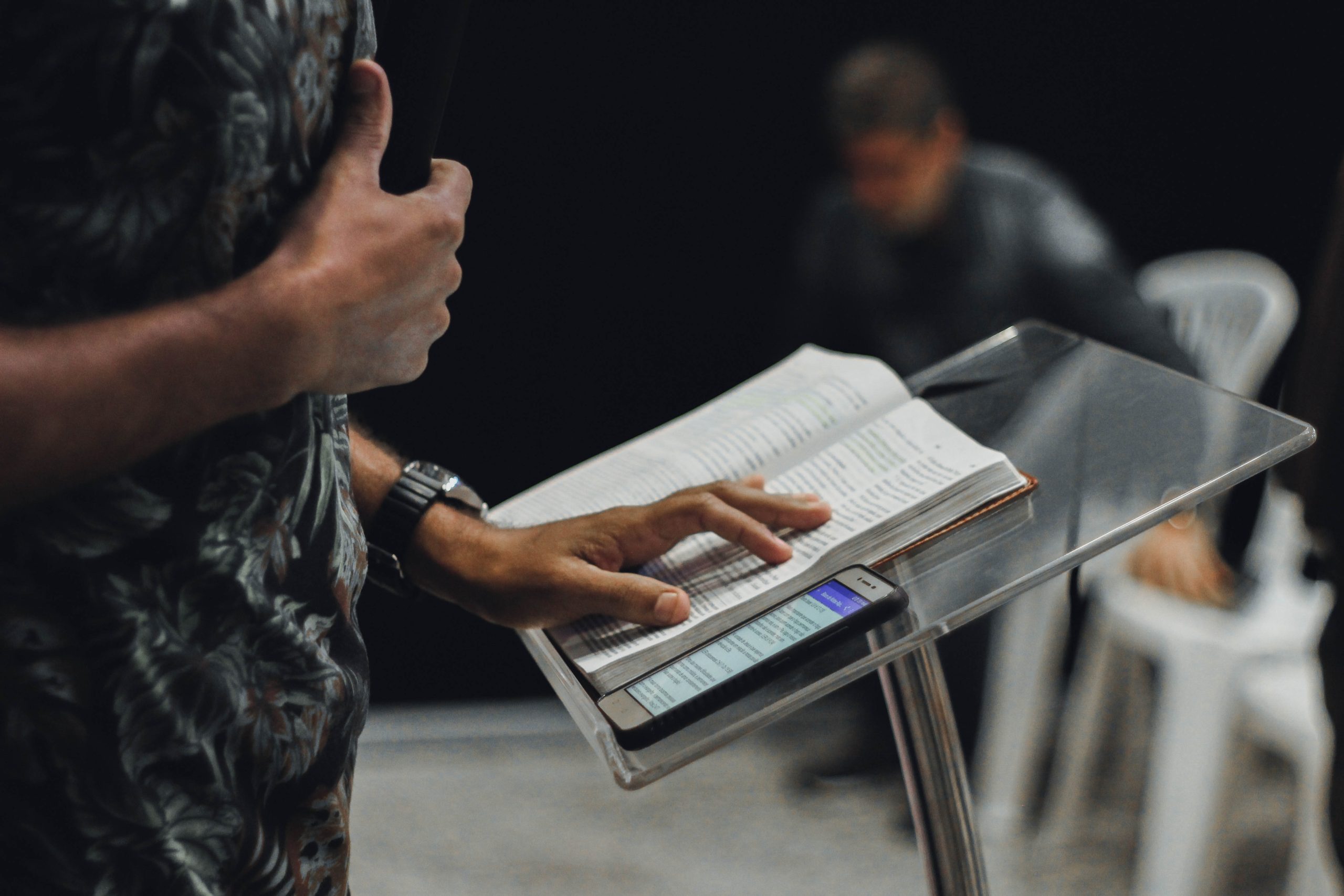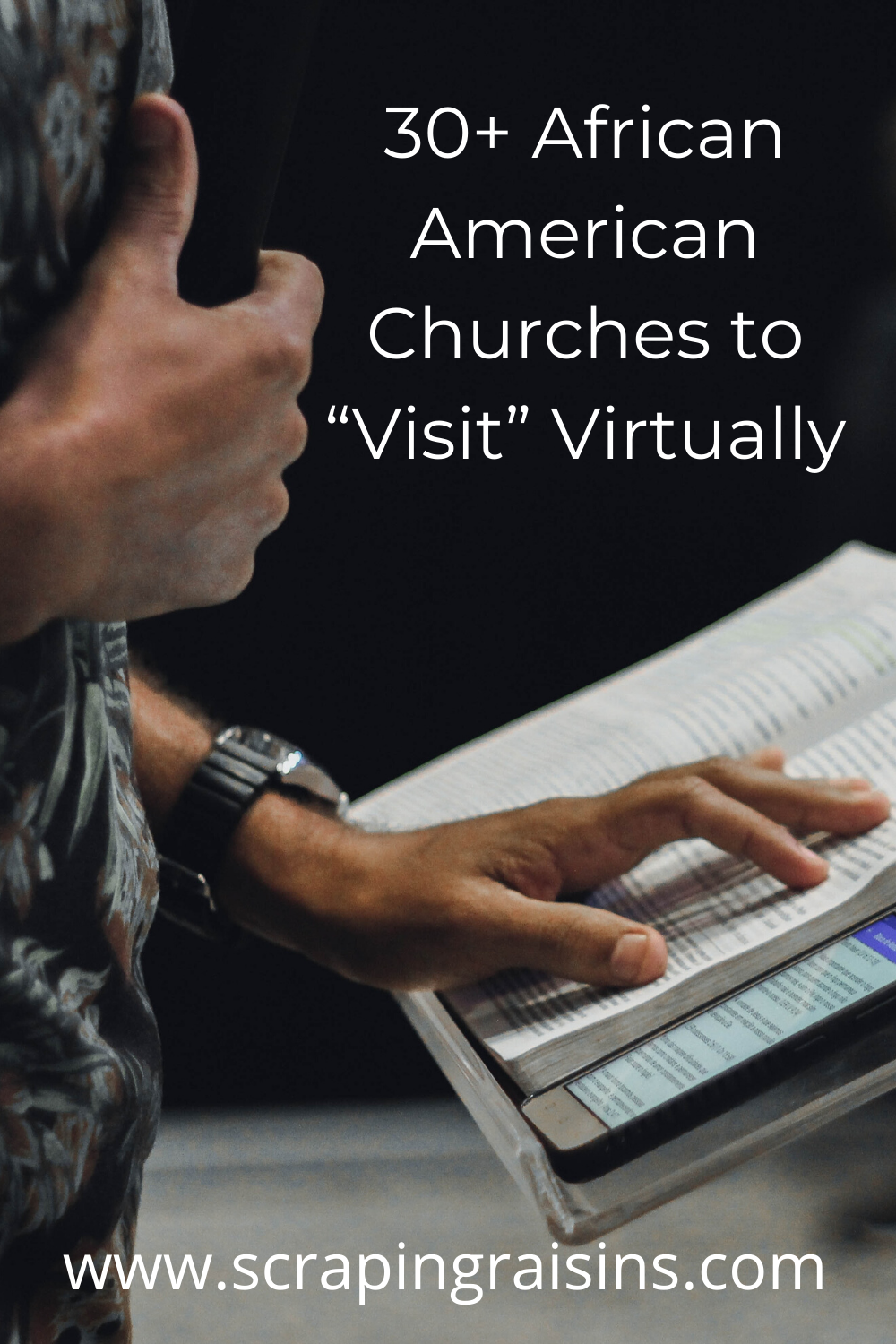
I asked on social media for recommendations for some outstanding preachers, pastors, and priests who also happen to be African American. If you are white, might I humbly suggest skipping your regular church service to join one of these churches on Sunday? Or at the very least, listen to one of the sermons an evening this week?
Sometimes God cracks open kairos moments in history. Kairos in Greek means “an opportune moment.” For the first time in history, we can visit one another’s churches all around the world to listen, lament, and learn–virtually. This is kairos, an opportune time.
These links will take you to the latest YouTube channels, Facebook Lives, or pre-recorded sermons for various African American-led churches around the United States. Many services include worship through music, dance, and the spoken word. Some of these churches have podcasts, so perhaps subscribe so you can supplement your own church sermon each week. If you’re easing up on social distancing, you could gather a small group of friends to watch in a backyard so you can discuss afterward.
White Christians have an opportunity to grow in empathy through virtual proximity. Below this list are preachers who may not pastor a church, but guest preach or speak. Both lists are far from exhaustive, so feel free to share more in the comments.
Check out these men and women of God, their churches, and their messages of hope:
Ricky Jenkins, Southwest Church (Indian Wells, CA), Podcast
Dr. Derwin Gray, Transformation Church (Indian Land, SC)
Dr. Eric Mason, Epiphany Fellowship Church (Philadelphia, PA)
Thabiti Anyabwile, Anacostia River Church (Washington, DC)
Sr. Pastor Rev. Dr. Traci Blackmon, Christ the King UCC (Florissant, MO)
Efrem Smith Midtown Campus, Bayside Church (Sacramento, CA)
Edrin Williams, The Sanctuary Covenant Church (Minneapolis, MN), Podcast
Dr. Dharius Daniels, Change Church (Ewing, NJ)
Dr. Charlie Dates Progressive Baptist Church (Chicago, IL)
Michael Todd, Transformation Church (Tulsa, OK)
Derwin Anderson & Dhati Lewis, Blueprint Church (Atlanta, GA)
Leslie D. Callahan, St. Paul’s Baptist Church (Philadelphia, PA)
Robert L. Scott, Jr., Quench Life Christian Fellowship (Dublin, CA), Podcast
H.B. Charles, Shiloh Church (Jacksonville, FL)
Dr. Dwayne Bond, Wellspring Church (Charlotte, NC)
Dr. Frederick Douglass Haynes, III, Friendship West (Dallas, TX)
Albert Tate, Fellowship Church (Monrovia, CA), Podcast
Rev. Jacqui Lewis, Middle Church (New York, NY)
Chris Brooks, Woodside Bible Church (multiple locations in Michigan)
Robert Galinas, Colorado Community Church (Denver, CO)
Paul Sheppard, Destiny Christian Fellowship (Fremont, CA)
John K. Jenkins, Sr., First Baptist Church of Glenarden (Upper Marlboro, MD)
Richard Allen Farmer, Crossroads Presbyterian Church (Stone Mountain, GA)
Rich Villodas, New Life Church (New York, NY)*
Dr. Tony Evans, Oak Cliff Bible Fellowship (Dallas, TX)
William H. Lamar, IV, Metropolitan AME Church (Washington, DC), Facebook
Hart Ramsey, Northview Christian Church (Dothan, AL)
Elbert McGowan, Jr., Redeemer Church (Jackson, MS)
Dr. Renita J. Weems, Ray of Hope Community Church (Nashville, TN), Audio
Rev. Dr. Otis Moss III, Trinity Church (Chicago, IL)*
Leonce B. Crump, Jr. Renovation Church (Atlanta, GA)
Other Speakers/Preachers:
To follow all of these preachers, visit my Twitter thread.
If you are new to the discussion on race, start here. I also recommend these three podcasts by women of color.
*Only live streaming available



 This month we’ll be discussing racism, privilege and bridge building. If you’d like to guest post on this topic, please email me at scrapingraisins(dot)gmail(dot)com. Yes, this is awkward and fraught with the potential for missteps, blunders and embarrassing moments, but it’s necessary. Join me?
This month we’ll be discussing racism, privilege and bridge building. If you’d like to guest post on this topic, please email me at scrapingraisins(dot)gmail(dot)com. Yes, this is awkward and fraught with the potential for missteps, blunders and embarrassing moments, but it’s necessary. Join me?